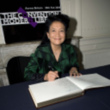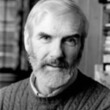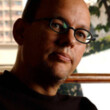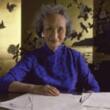Deng Xiaoping : a revolutionary life
(Book)
B DENG X
1 available
Copies
| Location | Call Number | Status |
|---|---|---|
| Aurora Hills - Adult Biography | B DENG X | Available |
Description
More Details
Notes
Also in this Series
Published Reviews
Booklist Review
*Starred Review* The authors of a compelling recent biography of Mao Zedong (Mao: The Real Story, 2012) now turn to Deng Xiaoping, the most influential Chinese figure of the post-Mao era. Their overall approach is similar: Both draw on previously unavailable Russian-language sources, dig deep into early influences, and reveal character with a panorama of generous detail. But if the challenge with Mao was parsing man from myth and politics, with Deng it is coming to terms with some messy contradictions. He may have been responsible for the dramatic revitalization of China's economy, the proliferation of coastal special economic zones, and an increased tolerance for letting some people get rich first, but it was also he who ordered the People's Liberation Army to be deployed in Tiananmen Square in the spring of 1989. Deng was tough, purposeful, ambitious and cruel, as shown by his interactions with party rivals (as well as his own family), but also cautious and patient in departing from Maoist ideals, among other things. Aiming for and largely achieving a balanced perspective, Pantsov and Levine give Deng credit for his accomplishments but do not shy away from his crimes. The result is a nuanced portrait of a genuine reformer who nevertheless kept his foot firmly on the brakes; a man of the people with an authoritarian bent; and, in the end, a man more similar to Mao than he was different.--Driscoll, Brendan Copyright 2015 Booklist
Kirkus Book Review
A barbed biography, relentless and occasionally sarcastic, reveals the many problematic facets of the long-lived revolutionary and reformer Deng Xiaoping (1904-1997).Unlike Ezra F. Vogel's Deng Xiaoping and the Transformation of China (2011), which focuses on the last third of the premier's life and is faulted by historians Pantsov (Capital Univ.) and Levine (Univ. of Montana) for not being critical enough of its subject, this work by the co-authors of Mao: The Real Story (2012) looks more extensively at Deng's formative years under Mao Zedong, using newly available material from the Russian State Archives and other sources. Beginning their account with the bloody purging of the student demonstrators in Tiananmen Square in 1989an order given by Deng to crush the "counterrevolutionary rebellion"the authors take great pains to delineate the makeup of a leader so inculcated by Maoist authoritarian ways that he would sacrifice everything to the communist cause, including his cherished reforms. Indeed, this would be the refrain of his remarkably resilient career, from his first repudiation of his adoring parents when he joined the Bolshevik movement as a student in Paris in the early 1920s to his sycophantic appeasement under Mao during the disastrous Great Leap. The authors emphasize that Deng embraced communism as a youth because he was "ready for anything that would help redress the insults and injuries inflicted upon him by the capitalist world." He became an obedient soldier of the Chinese Communist Party and, as chief of the Southwest Region during the 1950s, helped solidify the repression of Tibet and galvanize agrarian reform. Caught up in the "utopian hysteria" dictated by Mao, Deng nonetheless began to recognize the need to oppose the leader without compromising his own position. His skillful dance during the Cultural Revolution, when he was denounced, arrested and exiled, yet re-emerged rehabilitated, provides a valuable key to this enigmatic leader. A masterly work that advances by salient themes and vigorous strokes. Copyright Kirkus Reviews, used with permission.
Booklist Reviews
*Starred Review* The authors of a compelling recent biography of Mao Zedong (Mao: The Real Story, 2012) now turn to Deng Xiaoping, the most influential Chinese figure of the post-Mao era. Their overall approach is similar: Both draw on previously unavailable Russian-language sources, dig deep into early influences, and reveal character with a panorama of generous detail. But if the challenge with Mao was parsing man from myth and politics, with Deng it is coming to terms with some messy contradictions. He may have been responsible for the dramatic revitalization of China's economy, the proliferation of coastal special economic zones, and an increased tolerance for "letting some people get rich first," but it was also he who ordered the People's Liberation Army to be deployed in Tiananmen Square in the spring of 1989. Deng was "tough, purposeful, ambitious and cruel," as shown by his interactions with party rivals (as well as his own family), but also "cautious and patient" in departing from Maoist ideals, among other things. Aiming for and largely achieving a balanced perspective, Pantsov and Levine give Deng credit for his accomplishments but do not shy away from his crimes. The result is a nuanced portrait of a genuine reformer who nevertheless kept his foot firmly on the brakes; a man of the people with an authoritarian bent; and, in the end, a man more similar to Mao than he was different. Copyright 2014 Booklist Reviews.
Reviews from GoodReads
Citations
Pantsov, A., & Levine, S. I. (2015). Deng Xiaoping: a revolutionary life . Oxford University Press.
Chicago / Turabian - Author Date Citation, 17th Edition (style guide)Pantsov, Alexander, 1955- and Steven I., Levine. 2015. Deng Xiaoping: A Revolutionary Life. New York, NY: Oxford University Press.
Chicago / Turabian - Humanities (Notes and Bibliography) Citation, 17th Edition (style guide)Pantsov, Alexander, 1955- and Steven I., Levine. Deng Xiaoping: A Revolutionary Life New York, NY: Oxford University Press, 2015.
Harvard Citation (style guide)Pantsov, A. and Levine, S. I. (2015). Deng xiaoping: a revolutionary life. New York, NY: Oxford University Press.
MLA Citation, 9th Edition (style guide)Pantsov, Alexander, and Steven I. Levine. Deng Xiaoping: A Revolutionary Life Oxford University Press, 2015.
































